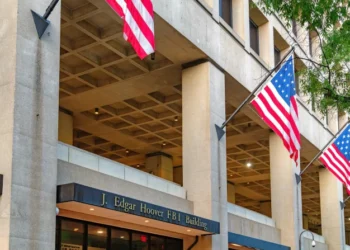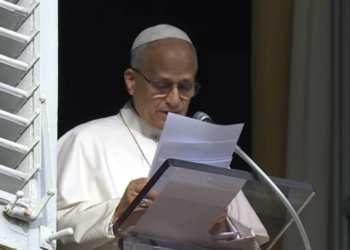Despite the dominant secularism of the age, Gen Z (those born between 1997 and 2012) are showing increasing signs of openness to the Faith. We—all parishioners—must be ready to accompany them in this journey of faith. They are seeking the relationship, love, and truth that God offers, and we must cooperate with His grace to help them find their spiritual home.
Signs of Renewal Among Young Catholics
Contrary to the popular narrative of decline, many young people today are not abandoning the Faith out of rebellion, but out of a lack of connection. They hunger for meaning, truth, and a relationship with God.
For instance, Jubilee 2025, an anticipated event drawing more than 60,000 pilgrims to Rome, emphasizes the Church’s ongoing efforts to establish unity among families and engage younger generations. The appointment of Pope Leo XIV, the first American pontiff, particularly affected younger American Catholics, who find compelling his message of serving humanity through faith and living the Gospel. Religious events aimed at younger generations, one of which recently attracted more than 70,000 students from 400 universities, further spotlights the spiritual awakening occurring among young adults.
Yet, despite such encouraging developments, this interest is not directly translating into consistent parish attendance.
Understanding the Attendance Gap
Research shows that Gen Z is approximately 20% less likely than the Silent Generation to attend religious services on a weekly basis. According to Pew Research, only 45% of young adults aged 18–29 identify as Christian, compared to 78% of adults over 65. Just over half (54%) of young adults identify as religious. While younger Catholics are spiritually receptive, their connection with the parish structure remains limited and often private. This broader shift in cultural religiosity makes it even more vital for parishes and parishioners to be intentional in how they guide the next generation.
Transparency and Authenticity are Essential
Younger Catholics are best engaged by parishes that demonstrate accountability and open dialogue with congregants. Fostering communication within the parish and community makes the church feel like home, not only helping retain this younger generation but also strengthening their connection to it.
On the parish level, sharing successes and challenges promotes this openness and resonates with Gen Z’s desire for a strong, honest community. They can do so via online platforms, social media, and newsletters. Parish-wide forums provide a form of direct communication with parishioners, allowing them to clearly understand how decisions are being made, and inviting them to offer suggestions or provide feedback. This involvement and transparency only increases parish engagement and connection.
The Spirit of Generosity in a Digital Age
For Gen Z, often called “digital natives,” technology is not a novelty; it’s part of daily life. Many have never known a world without smartphones, streaming, or digital payments. That’s why parishes seeking to reach younger Catholics must modernize their giving methods—through reliable and easy means of online giving. However, the changes don’t end there. Tools like online giving or mobile apps can support generosity, but they must be rooted in a theology of stewardship that speaks to the heart. Giving, after all, is not a transaction; it’s an act of trust in God’s providence and a way of participating in the life of the Church.
Parishioners of all ages can help young people see that cheerful giving isn’t just about sustaining parish budgets; it’s about transforming hearts and building the Kingdom. When we show how offerings support ministries, feed the hungry, or help form future vocations, we invite Gen Z to see their gifts as part of something crucial and lasting.
Though Gen Z currently contributes the least annually, averaging around $867, nearly 30% say they plan to give more in the coming year. They are eager to contribute when they see transparency, purpose, spiritual impact, and accompaniment. Even something as simple as a parishioner explaining how their own giving journey has shaped their faith can deeply resonate. The call to be generous with our time, talent, and treasure isn’t new, but it is renewed each time a young person says “yes” to it.
Recognizing Younger Voices in Parish Life
Young people don’t just want to be welcomed; they want to be needed. And they are, deeply. Whether it’s serving as lectors, helping lead youth ministry, organizing service events, or sharing personal testimonies, invite Gen Z to take active roles.
Personalized outreach can significantly boost young disciples’ engagement, deepening Gen Z faith and fostering their spiritual growth. Using technology to recognize attendance, ministry involvement, and personal interests allows parishes to walk with Gen Z in their faith journey.
For older parishioners, mentoring youth in their roles is a profound spiritual act. Just as Paul mentored Timothy (1 Tim. 4:12), today’s adults are called to accompany younger generations in faith, reminding them that their youth is not a liability, but a gift for the Church. Through personalized messages, meetings, milestone recognitions, or tailored event invitations, parishes demonstrate that each individual’s spiritual journey matters.
Navigating Changing Gender Dynamics
Historically, women have made up the majority of parish life through volunteerism and service, but recent trends show more Gen Z women identifying as religiously unaffiliated, while Gen Z men are attending church at steadier rates than in past generations.
This shift challenges assumptions and invites the Church to reflect on how young women and men are experiencing spiritual life. Women may be seeking spaces where their intellectual and vocational aspirations are spiritually supported, while men may be drawn to clear rites of passage, tradition, and spiritual challenge. Creating room for both paths allows each soul to be met personally.
A Shared Mission
Building a spiritually enriched parish is not about new systems or trends; it’s about extending the mission of the Church into the hearts and souls of her members—as she has always done. Despite the challenges our world faces today, we know that the gates of hell will not prevail against this mission: to form disciples in prayer and the sacraments, to nurture communion and love, and to proclaim the truth of Christ. Being able to understand and meet this younger generation in their faith journey may require updated means of connection, but it forges relationships and creates the trust necessary to transform religious seekers into cheerful and practicing disciples.
Guiding new members of one’s parish is not only spiritually rewarding for those entering or returning to the Church; it provides an opportunity for all parishioners to grow in their own relationship with the Lord and carry out the Great Commission, as we are called to do.
Photo by TJ Birnbaum on Unsplash











